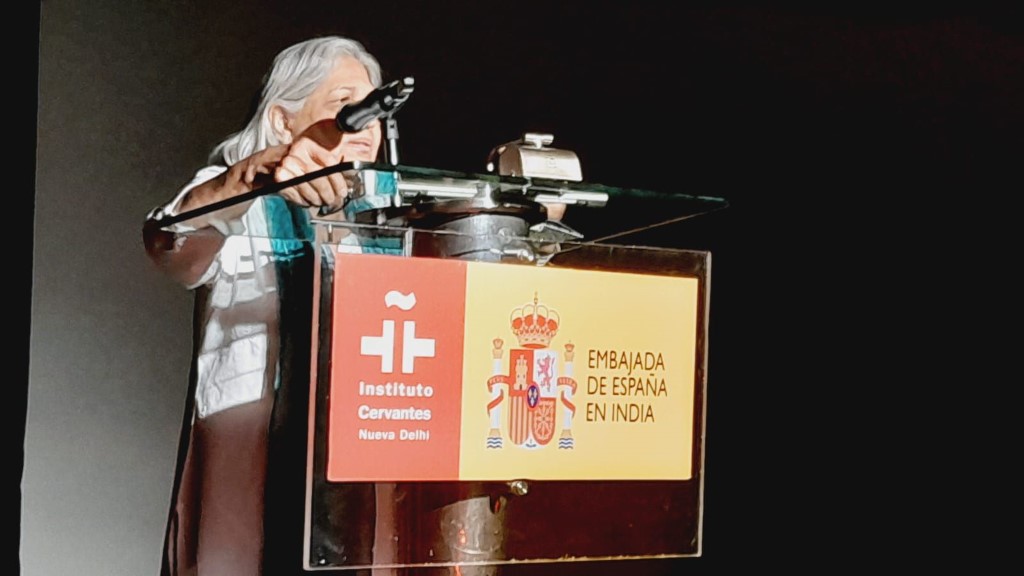At the presentation of the feature film by filmmaker Fernando Perez at the Cervantes Institute in New Delhi, Abel Aballe, Chargé d’Affaires a.i. of the Cuban Embassy in India, stressed that the principles of the Cuban Revolution have deep roots in Marti’s concepts of unity, anti-imperialism, justice, and human dignity.
Before Indian researchers of Martí’s work, members of the diplomatic corps of Latin American and Caribbean nations, and students of the center, Aballe emphasized that the Apostle’s thought is reflected in the resistance of the Cuban people to an economic, commercial and financial blockade imposed more than 60 years ago by the United States, which, he said, reinforced in the last period, is the main obstacle to the development of the island.
He pointed out that Martí’s preaching is also present in Cuba’s foreign policy positions, such as its invariable support for the cause of the Palestinian people, their rights to exist as a nation and state, and condemnation of the Israeli massacre in the occupied territories, mainly Gaza.
The commemoration of the 129th anniversary of his death, more than the pain of his early physical demise, was a pretext to celebrate the life, achievements and impact of his work on numerous generations of Cubans, as well as citizens of Latin America and the Caribbean, and the rest of the world, the diplomat added.
jrr/arm/mem/lrd










